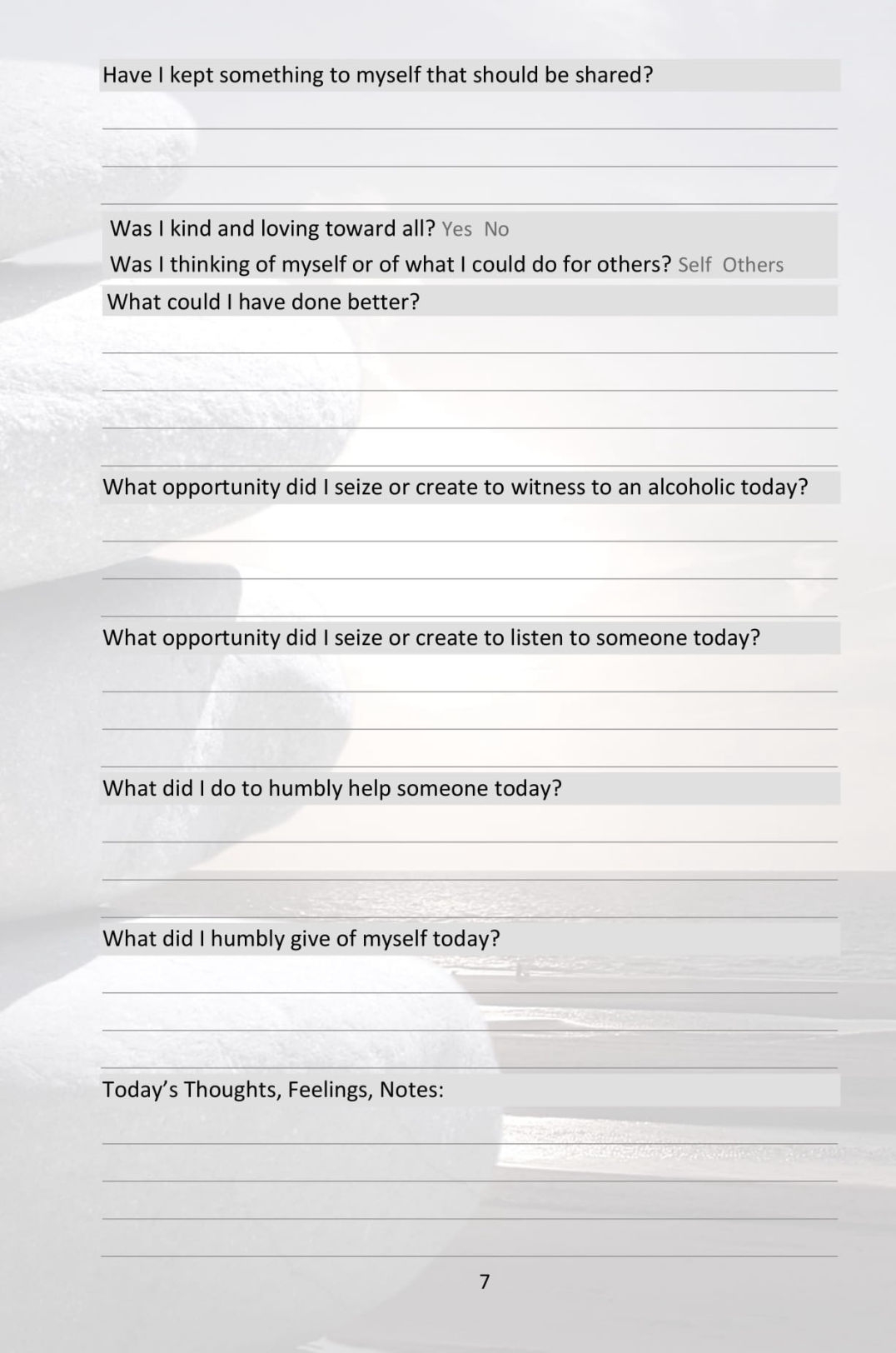When working through the 12 steps of Alcoholics Anonymous (AA), Step 10 is a crucial part of maintaining sobriety and continued personal growth. This step involves taking a personal inventory and admitting when we are wrong promptly. It requires self-reflection and accountability, which can be challenging but ultimately rewarding in the journey towards recovery.
Step 10 encourages individuals to regularly assess their thoughts, actions, and behaviors. By acknowledging our mistakes and making amends, we can prevent resentments and negative emotions from building up and potentially leading to a relapse. This step promotes self-awareness and mindfulness in navigating daily life.
One way to work through Step 10 is by using a worksheet. This tool can help individuals track their progress, identify patterns, and reflect on their experiences. The worksheet typically includes prompts such as listing resentments, fears, and harms done to others, as well as noting positive actions taken and improvements made.
By completing the Step 10 worksheet regularly, individuals can stay accountable to themselves and their sobriety journey. It provides a structured approach to self-inventory and fosters a sense of responsibility for one’s actions. This process can be empowering and help individuals stay focused on their goals of recovery and personal growth.
In conclusion, Step 10 of the AA program is an essential part of maintaining sobriety and continued spiritual development. Using a worksheet to work through this step can enhance self-awareness, promote accountability, and support ongoing recovery efforts. By regularly reflecting on our thoughts and behaviors, admitting when we are wrong, and making amends promptly, we can continue to grow and thrive in sobriety.
